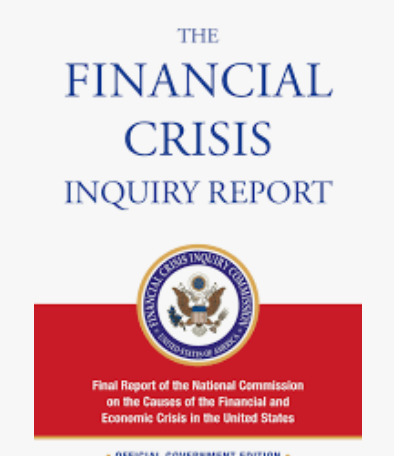Recommendations Post-Crisis
Recommendations Moving Forward
The following section goes in-depth with the recommendations offered by the Senate Subcommittee three years after the financial crisis. In their report, titled the "Financial Crisis Inquiry Report," the Subcommittee identifies the four main causes for the crisis, and how each of these causes can be minimized moving forward so that there is never an issue such as this ever again.
1) How can banks minimize their high risk lending practices ?
- In this section, the Senate Subcommittee came up with multiple recommendations as to how lending can become low-risk.
- First, the Subcommittee made a point that the regulators of banks need to better insure that "qualified" mortgages do not have a high risk of default, because this would make them extremely risky.
- Next, banks should put larger risk retention requirements in place. The Subcommittee said at least 5%. What this would mean is that if a bank has created or invested in a security, they must maintain at least a 5% position of the asset, so they have some sort of stake in what they are marketing.
- Lastly, banks should protect investors from high risk financial products, such as the MBS they created, in order to better protect their portfolios.
2) How can Regulatory failures such as the ones we saw during the crisis be minimized?
- The first of these recommendations was to completely break up the Office of Thrift Supervision. This would be done by the Office of the Comptroller of Currency.
- Today, the OTS no longer exists.
- The second recommendation was to make sure that the major regulating bodies were forced to conduct far more in-depth reviews of banks, more frequently, and to increase enforcement and punishment to any major banks mismanaging their activities.
- Next, the Subcommittee recommended a review of the CAMELS system.
- The CAMELS system is a financial rating performed on banks to determine whether they will be able to continue operating efficiently and effectively over a period of time. Obviously, the CAMELS system had failed because it was not able to figure out these inefficiences in the banks in the first place.
3) How can the credibitility of rating agencies be restored and how can they be held accountable?
- A new yearly ranking woud be conducted by the SEC based on the accuracy of agencies ratings. On top of this, the SEC would perform internal controls tests and audits on rating agencies so as to make sure there were no longer "agency conflicts" or the conflicts of interest learned about in the last section.
- Furthermore, new laws were passed allowing for investors to be able to hold the rating agency responsible for intentionally or even accidentally providing an inaccurate rating of a security.
- THIS MEANS MORE POWER TO THE INVESTOR!
- Another recommendation that seems obvious is that rating agencies need to know when to recognize risk, and need to know that risk is important not only with the structure and makeup of a financial security, but should also look at the structure and level of risk associated with the bank or financial institution itself.
- Lastly, the Subcommittee pushed for the value of private rating agencies to be dropped, as there was too much conflict involved.
4) How can the investment banks be put in check so that this never happens again?
- The first recommendation by the Subcommittee for this cause was to conduct a deep study on the theories of structured finance. Structured finance refers to what banks were doing around this time in creating extremely complex financial securities. Often times, these structured financial securities can seem better than they are, and can be accepted before there is any truly positive track record of them.
- Ban proprietary trading. Banks should only be trying to serve in the best interests of their client, no one else. It is impossible for banks to serve their clients when they are also trying to serve themselves.
- Tied in with this, regulations were imposed that made market-making much harder to do. This refers to the ability to use structured finance to create a product never seen before, thus making a new market for it.
